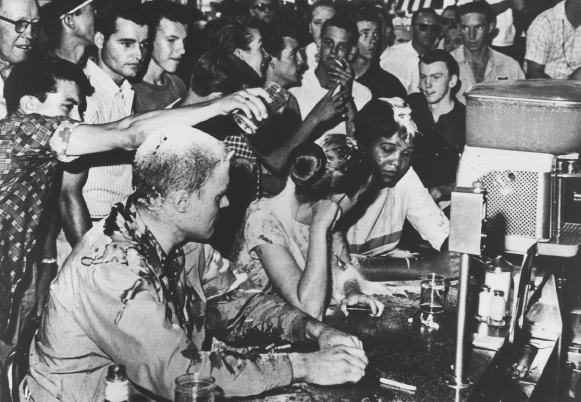How did the civil rights movement evolve in the 1960s?
Printed Page 844
AS MUCH AS SUPREME COURT DECISIONS, the black freedom struggle distinguished the liberalism of the 1960s from that of the New Deal. Before the Great Society reforms — and, in fact, contributing to them — African Americans had mobilized a movement that struck down legal separation and discrimination in the South and secured their voting rights. Whereas the first Reconstruction reflected the power of northern Republicans in the aftermath of the Civil War, the second Reconstruction depended heavily on the courage and determination of black people themselves to stand up to racist violence.
Civil rights activism that focused on the South and on legal rights won widespread acceptance. But when African Americans stepped up protest against racial injustice in the rest of the country and challenged the economic deprivation that equal rights left untouched, a strong backlash developed as the movement itself lost cohesion.

CHRONOLOGY
1960
- – Student Nonviolent Coordinating Committee (SNCC) is founded.
1961
- – Freedom Rides.
1963
- – March on Washington.
1964
- – Civil Rights Act.
- – Mississippi Freedom Summer Project.
1965
- – Voting Rights Act.
1965–1968
- – Riots in major cities.
1966
- – Black Panther Party for Self-Defense is founded.
1968
- – Martin Luther King Jr. is assassinated.